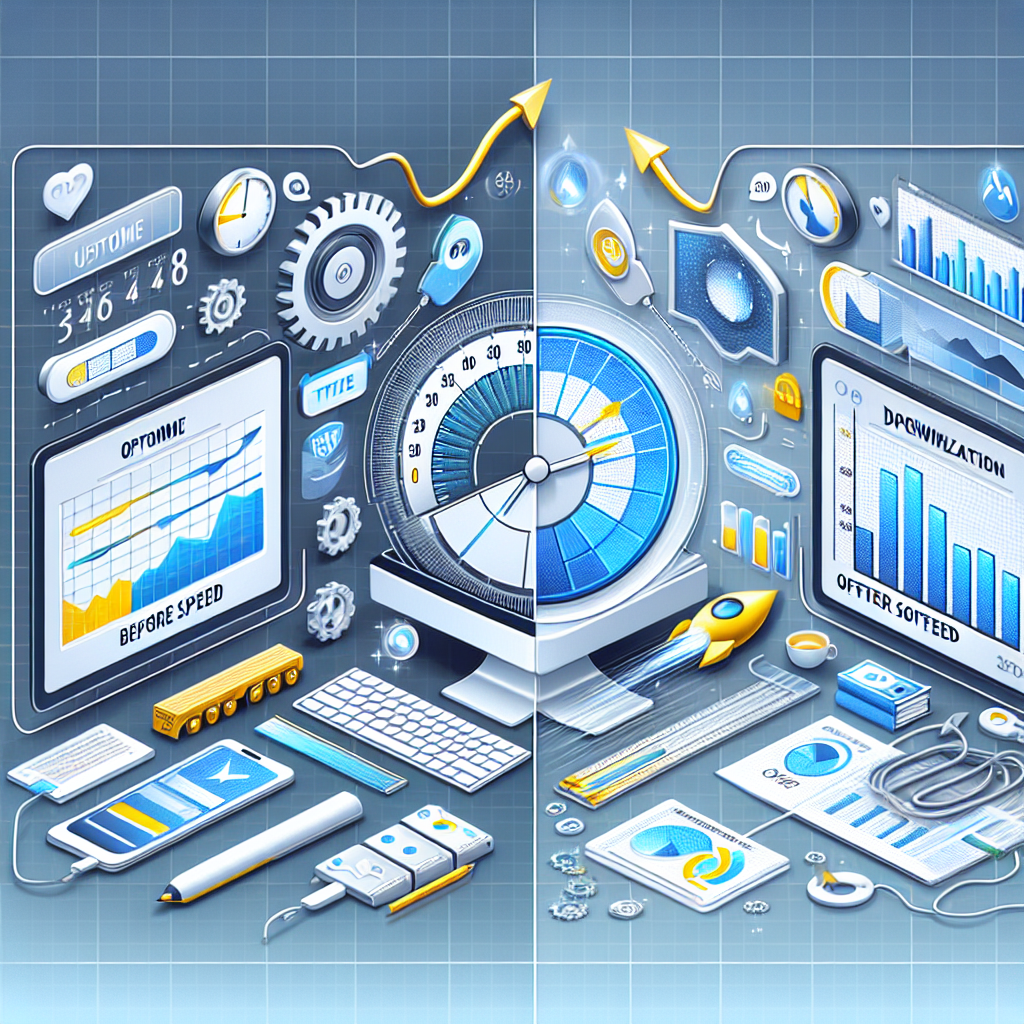Having a slow internet connection can be frustrating, especially when you’re trying to download software. Luckily, there are several ways you can optimize your internet speed to ensure faster downloads. By following a few simple steps, you can greatly improve your downloading experience and save time. In this guide, we will explore various techniques and tips to help you speed up your internet connection for smoother software downloads. Whether you’re a gamer, a student, or a professional, having a fast internet speed is essential for staying productive and efficient. Let’s dive into the world of internet optimization and unlock the full potential of your downloading capabilities.
Understanding Internet Speed for Software Downloads

When it comes to optimizing your internet speed for faster software downloads, it is crucial to have a solid understanding of the key factors that influence the speed at which you can download software. This understanding will enable you to make informed decisions and adjustments to enhance your download speed.
Bandwidth and Speed
Bandwidth refers to the maximum amount of data that can be transmitted through your internet connection in a given amount of time. On the other hand, speed refers to the rate at which data is transmitted. While bandwidth determines the potential capacity of your connection, speed indicates how quickly data can be transferred within that capacity. Therefore, having a high bandwidth does not necessarily guarantee fast download speeds if the speed is limited.
Factors Affecting Download Speed
Several factors can impact the speed at which you can download software:
- Internet Service Provider (ISP): The quality of your ISP and the type of plan you have chosen can significantly affect your download speed.
- Distance from Server: The physical distance between your location and the server hosting the software can influence download speeds.
- Network Traffic: The amount of traffic on your network, especially during peak hours, can slow down your download speeds.
- Hardware Limitations: The capabilities of your modem, router, and computer can also impact your download speed.
Connection Type
The type of internet connection you have plays a crucial role in determining your download speed. Different connection types include:
- DSL: Digital Subscriber Line connections offer decent download speeds, but they can be affected by the distance from the provider’s central office.
- Cable: Cable internet connections are known for providing high-speed downloads, especially in areas with good infrastructure.
- Fiber: Fiber-optic connections offer the fastest download speeds as they can handle large amounts of data with minimal interference.
Network Congestion
Network congestion occurs when there is a high volume of data traffic on a network, leading to slower download speeds. This congestion can be caused by various factors, such as:
- Peak Hours: Internet usage peaks during certain times of the day, resulting in slower speeds for everyone on the network.
- Shared Connections: Shared internet connections, especially in multi-unit buildings, can lead to congestion and reduced download speeds.
- Overloaded Servers: If the server hosting the software is overwhelmed with requests, it can slow down download speeds for all users.
By understanding these key aspects of internet speed for software downloads, you can take proactive steps to optimize your connection and ensure faster download speeds for your software.
Analyzing Your Current Internet Speed
When it comes to optimizing your internet speed for faster software downloads, the first step is to accurately assess your current connection. This involves conducting a speed test to gauge the performance of your internet service provider. Here are some key aspects to consider during this analysis:
-
Conducting a Speed Test: Utilize reputable online tools such as Ookla’s Speedtest or Fast.com to measure your download and upload speeds. These tests typically provide insights into your connection’s latency, jitter, and overall stability.
-
Interpreting Results: Once the speed test is complete, focus on understanding the data presented. Pay close attention to metrics such as ping (latency), download speed, and upload speed. These values will give you a clear picture of your internet’s performance capabilities.
-
Download Speed: In the context of software downloads, the download speed is a critical factor. A fast download speed, typically measured in megabits per second (Mbps) or gigabits per second (Gbps), ensures that you can quickly retrieve large software files from the internet.
-
Upload Speed: While download speed is prioritized for most users, upload speed also plays a role in software downloads. Uploading data to servers during the download process requires a stable and adequate upload speed to maintain a seamless experience.

Tips for Improving Internet Speed
Optimizing Router Settings
- Choose the Right Channel: Selecting the least congested Wi-Fi channel can significantly boost your internet speed for faster software downloads. Interference from neighboring networks can slow down your connection.
- Enable Quality of Service (QoS): Prioritize software downloads by setting up QoS on your router. This feature ensures that your download traffic gets the necessary bandwidth over other less critical activities.
- Update Firmware Regularly: Keeping your router’s firmware up to date is crucial for optimizing its performance. Firmware updates often include enhancements that improve speed and stability.
Wired vs. Wireless Connection
- Wired Connection: Using an Ethernet cable for your internet connection can provide faster and more reliable speeds compared to Wi-Fi. Ethernet connections are less prone to interference and offer a direct link to your router.
- Wireless Connection: While convenient, wireless connections can be slower due to signal interference, distance from the router, and the number of devices connected. Consider switching to a wired connection for large software downloads.
Updating Network Drivers
- Importance of Network Drivers: Outdated or faulty network drivers can impact your internet speed. Regularly updating your network drivers ensures that your computer can communicate efficiently with your router, maximizing download speeds.

- Checking for Updates: Visit the manufacturer’s website or use device manager to check for the latest network driver updates. Installing the newest drivers can resolve compatibility issues and improve overall internet performance.
Enhancing Software Download Efficiency
When aiming to optimize your internet speed for faster software downloads, there are several strategies you can employ to enhance the efficiency of your download process.
Choosing the Right Download Manager
Selecting the appropriate download manager can significantly impact the speed and reliability of your software downloads. Some key features to consider when choosing a download manager include:
- Multi-threading Support: Look for a download manager that supports multi-threading, allowing for the simultaneous downloading of different parts of a file. This can help accelerate download speeds, especially for larger files.
- Pause and Resume Functionality: Opt for a download manager that offers the ability to pause and resume downloads. This feature can be handy in case of interruptions or network issues, enabling you to pick up where you left off without having to restart the entire download.
- Bandwidth Allocation: A good download manager should allow you to allocate bandwidth priorities to certain downloads, ensuring that critical or high-priority downloads receive the necessary network resources for faster completion.
Utilizing Parallel Downloads
One effective way to expedite software downloads is by leveraging the capability for parallel downloads. By initiating multiple download streams simultaneously, you can divide the workload across different connections, maximizing your internet speed potential. This approach is particularly beneficial when downloading multiple files or large software packages, as it can substantially reduce the overall download time.
Clearing Cache and Temp Files
Clearing cache and temporary files on your system can contribute to faster software downloads by optimizing available storage space and streamlining data retrieval processes. When your cache is cluttered with unnecessary data, it can slow down download speeds and hinder the efficiency of your internet connection. Regularly clearing out these files not only frees up storage but also helps improve the overall performance of your system, leading to faster and smoother software downloads.
Utilizing Content Delivery Networks (CDNs)
Content Delivery Networks, commonly known as CDNs, are a network of servers distributed geographically to deliver web content efficiently. CDNs work by caching content on servers located closer to the end-users, reducing the distance data needs to travel and consequently speeding up the download process.
-
Understanding CDNs: CDNs serve as intermediaries between users and the original server hosting the software files. When a user initiates a download, the CDN identifies the nearest server with the requested content, enabling quicker access and download speeds.
-
Benefits for Software Downloads: CDNs significantly accelerate software downloads by reducing latency and increasing bandwidth availability. By distributing content across multiple servers, CDNs can handle higher traffic volumes, leading to faster download speeds for users irrespective of their location.
-
Local Servers: One key advantage of CDNs is the use of local servers. By storing copies of software files in servers located closer to end-users, CDNs minimize the physical distance data needs to travel. This proximity results in quicker download times as the content can be retrieved faster from a nearby server.
-
Caching Mechanisms: CDNs employ caching mechanisms to store frequently accessed content locally. When a user requests software download, the CDN checks if the content is already cached on a nearby server. If the content is available, the download is expedited as the data is retrieved from the local cache rather than the original server, enhancing download efficiency and speed.
FAQs: How to Optimize Your Internet Speed for Faster Software Downloads
What are some ways to speed up my internet for software downloads?
One way to speed up your internet for software downloads is to make sure you have a strong and stable internet connection. This can be achieved by using a high-speed internet service provider and connecting to your router with an Ethernet cable instead of relying on Wi-Fi. Additionally, closing any unnecessary programs or browser tabs that are consuming bandwidth can help improve download speeds.
Are there any settings I can adjust to improve my internet speed for software downloads?
Yes, there are several settings you can adjust to optimize your internet speed for software downloads. One important setting to check is your Quality of Service (QoS) settings on your router, which can prioritize data traffic for your downloads. You can also try changing the DNS server on your computer to a faster one, or adjusting the TCP/IP settings to optimize your connection speed.
Is there a software or tool that can help me speed up my internet for software downloads?
Yes, there are several software and tools available that can help improve your internet speed for software downloads. One popular tool is a download manager, which can optimize your download speeds by splitting files into multiple parts and downloading them simultaneously. Additionally, you can use a network optimizer tool to analyze and optimize your network settings for faster downloads.
Can upgrading my internet service plan help speed up my software downloads?
Upgrading your internet service plan to a higher speed can definitely improve your download speeds for software. If you frequently download large files or stream high-definition content, upgrading to a faster internet plan with higher download speeds can significantly reduce the time it takes to download software. Be sure to check with your internet service provider for available plans and pricing options.